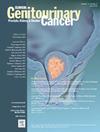并用药物对晚期或转移性肾细胞癌全身疗法患者总生存期的影响:系统回顾与 Meta 分析》(The Impact of Concomitant Medications on Overall Survival of Patients Treated with Systemic Therapy for Advanced or Metastatic Renal Cell Carcinoma: A Systematic Review and Meta-analysis.
IF 2.3
3区 医学
Q3 ONCOLOGY
引用次数: 0
摘要
尽管免疫检查点抑制剂(ICI)和/或酪氨酸激酶抑制剂(TKI)是晚期不可切除或转移性肾细胞癌(RCC)的标准治疗方法,但伴随药物的影响仍不明确。我们旨在评估并用药物对接受全身治疗的晚期不可切除或转移性RCC患者生存结果的影响。2024年8月,我们在PubMed、Scopus和Web of Science上查询了评估晚期不可切除或转移性RCC患者伴随用药的研究(PROSPERO:CRD42024573252)。主要结果是总生存期(OS)。根据异质性采用固定效应或随机效应模型进行荟萃分析。我们确定了 22 项符合条件的研究(5 项前瞻性研究和 17 项回顾性研究),包括 16,072 名患者。同时服用的药物包括质子泵抑制剂(PPI)(n = 3959)、抗生素(n = 571)、他汀类药物(n = 5466)、肾素-血管紧张素系统抑制剂(RASi)(n = 6615)和β-受体阻滞剂(n = 1964)。在接受 ICI 治疗的患者中,同时服用 PPI 和抗生素与较差的 OS 显著相关(PPI:HR:1.22,P = .01;抗生素:HR:2.09,P < .001)。同时服用他汀类药物、RASi 或 β-受体阻滞剂与 TKI 治疗患者的 OS 改善显著相关(他汀类药物:HR:0.81,P = 0.01,抗生素:HR:2.09,P < 0.001):HR:0.81,P = .03;RASi:HR:0.63,P < .001;β-受体阻滞剂:HR:0.69,P < .001)。在接受 ICI 治疗的患者中,RASi 与 OS 的改善显著相关(HR:0.64,P = .02)。ICI 同时使用抗生素或 PPI 会降低其肿瘤疗效。相反,同时使用他汀类药物、RASi 或 β-受体阻滞剂可提高 TKI 的肿瘤疗效。在开始对转移性 RCC 进行全身治疗时,临床医生必须评估基线联合用药,并认识到它们可能产生的积极或消极影响。本文章由计算机程序翻译,如有差异,请以英文原文为准。
The Impact of Concomitant Medications on the Overall Survival of Patients Treated with Systemic Therapy for Advanced or Metastatic Renal Cell Carcinoma: A Systematic Review and Meta-analysis
Although immune checkpoint inhibitors (ICI) and/or tyrosine kinase inhibitors (TKI) are the standard treatment of advanced unresectable or metastatic renal cell carcinoma (RCC), the impact of concomitant medications remains unclear. We aimed to evaluate the impact of concomitant medications on survival outcomes in patients treated with systemic therapy for advanced unresectable or metastatic RCC. In August 2024, PubMed, Scopus, and Web of Science were queried for studies evaluating concomitant medications in patients with advanced unresectable or metastatic RCC (PROSPERO: CRD42024573252). The primary outcome was overall survival (OS). A fixed- or random-effects model was used for meta-analysis according to heterogeneity. We identified 22 eligible studies (5 prospective and 17 retrospective) comprising 16,072 patients. Concomitant medications included proton pump inhibitors (PPI) (n = 3959), antibiotics (n = 571), statins (n = 5466), renin-angiotensin system inhibitors (RASi) (n = 6615), and beta-blockers (n = 1964). Both concomitant PPI and antibiotics were significantly associated with worse OS in patients treated with ICI (PPI: HR: 1.22, P = .01, and antibiotics: HR: 2.09, P < .001). Concomitant statins, RASi, or beta-blocker were significantly associated with improved OS in patients treated with TKI (statins: HR: 0.81, P = .03, RASi: HR: 0.63, P < .001, beta-blocker: HR: 0.69, P < .001, respectively). In patients treated with ICI, RASi was significantly associated with improved OS (HR: 0.64, P = .02). Concomitant use of antibiotics or PPI with ICI can reduce its oncologic efficacy. Conversely, concomitant statins, RASi, or beta-blockers can enhance the oncologic efficacy of TKI. When initiating systemic therapy for metastatic RCC, it may be important for clinicians to assess baseline co-medications and recognize their possible positive or negative effects.
求助全文
通过发布文献求助,成功后即可免费获取论文全文。
去求助
来源期刊

Clinical genitourinary cancer
医学-泌尿学与肾脏学
CiteScore
5.20
自引率
6.20%
发文量
201
审稿时长
54 days
期刊介绍:
Clinical Genitourinary Cancer is a peer-reviewed journal that publishes original articles describing various aspects of clinical and translational research in genitourinary cancers. Clinical Genitourinary Cancer is devoted to articles on detection, diagnosis, prevention, and treatment of genitourinary cancers. The main emphasis is on recent scientific developments in all areas related to genitourinary malignancies. Specific areas of interest include clinical research and mechanistic approaches; drug sensitivity and resistance; gene and antisense therapy; pathology, markers, and prognostic indicators; chemoprevention strategies; multimodality therapy; and integration of various approaches.
 求助内容:
求助内容: 应助结果提醒方式:
应助结果提醒方式:


